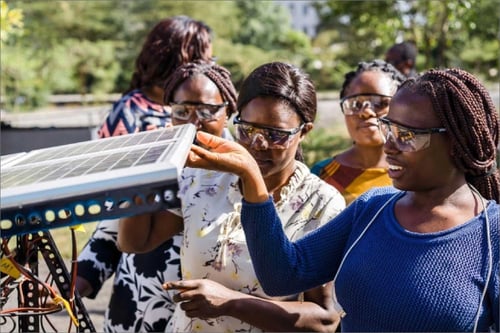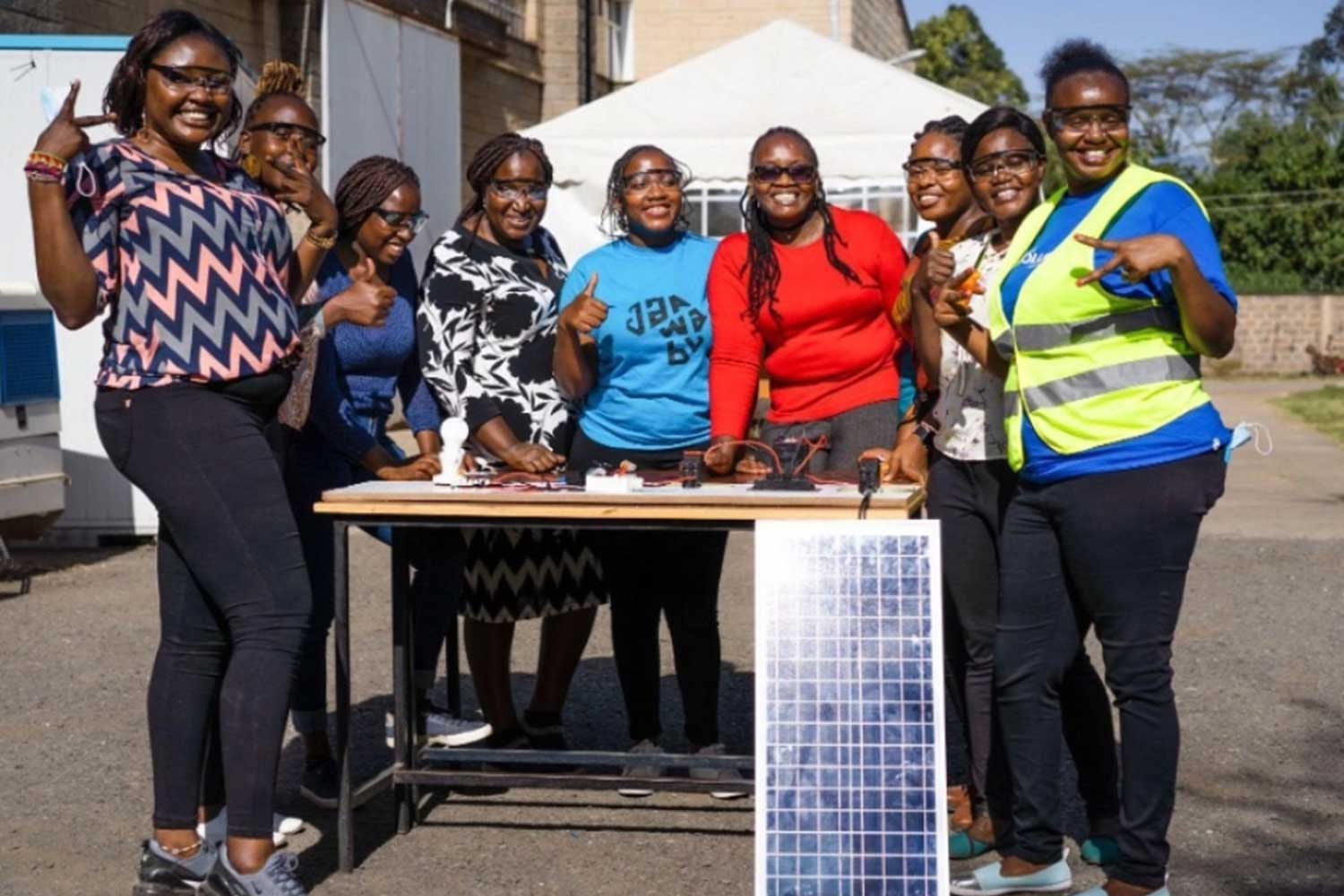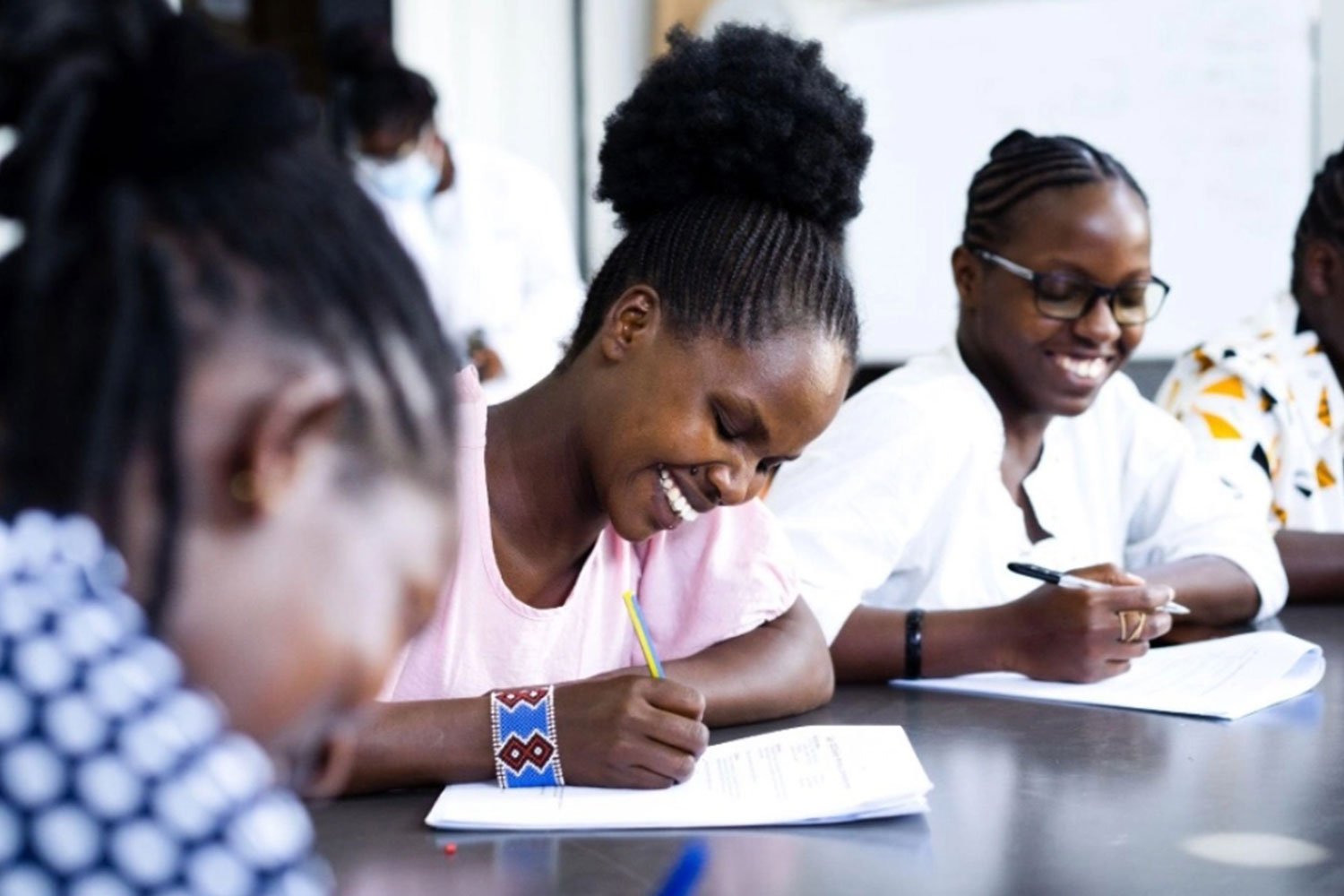
The world is in the midst of a renewable energy revolution. Solar power is leading the charge by harnessing the power of the sun through solar photovoltaic (PV) modules, solar energy is clean, sustainable, and naturally more abundant than its fossil fuel counterpart. The demand for solar energy is growing at an unprecedented pace, creating countless opportunities for individuals and companies to take advantage of this fast-growing industry.
The future is bright for those interested in a career in solar power. According to the US Bureau of Labor Statistics, employment of Solar PV installers is set to surge by a staggering 27% in the coming years, outpacing growth rates across all other occupations.
Remote Energy is an organization that mentors aspiring Solar PV technicians and educators in remote and underrepresented communities worldwide. Since 2017, Remote Energy has been working tirelessly to develop the solar industry, making it a more equitable, diverse, and inclusive field. Focusing on gender balance and equal representation, Remote Energy is breaking down barriers and creating opportunities for individuals from all backgrounds to thrive.
“Solar energy is a tangible solution to climate change and a solution that we can implement right now. It’s a proven technology and it’s also really great for bringing power to remote areas. That’s another big part of our focus, thus the name Remote Energy,” added Laura Walters, Co-Founder of Remote Energy. “We focus on bringing power to more remote areas. A lot of our student population are implementing small off-grid systems.”
Remote Energy provides female-led women-only solar energy training programs that create a supportive environment where women can learn, grow, and succeed in a traditionally male-dominated industry. These programs equip women with the skills and knowledge needed to succeed in the solar energy field while also providing valuable mentorship and networking opportunities that can help accelerate their careers. The women who participate in these programs are empowered to pursue their dreams. This makes them role models for other women who may be interested in pursuing a career in solar energy. They also noticeably observed a 2-5 fold increase in the number of women who enroll in women-only classes compared to co-ed classes.
Remote Energy has partnered with Fluke Corporation to prioritize gender equity and women’s empowerment in the solar energy industry. After a 2020 Energy Regulatory Authority study found that only 27 of the 400 licensed solar technicians in Kenya were women, both parties hope to change that. By working collaboratively, they make the program more accessible and foster a diverse solar energy workforce that reflects the needs and values of the communities they are impacting. Fluke is supporting the Remote Energy Global Women’s Program by sponsoring scholarships for students to take e for both online and hands-on in-person classes.
Laura Walters further explained that the students in the Remote Energy’s DC Solar System Fundamentals class come from all different backgrounds. One student shared her experience growing up in a rural area that relied on charcoal and kerosene burning for fuel. She said the air quality gave her family headaches and sore eyes. That was a common experience among the other students as well. This student was very excited to be taking this course because she wants to become a certified solar technician so that she can improve the lives of people in her community.
The Remote Energy vision to bridge the gap goes beyond just providing technical training; it’s about creating a pathway for their students to succeed in the solar industry and ultimately bring positive change to their students’ communities. Laura said, “It’s important to not just train for training sake but help people join the industry and get the experience that they need to be successful for paid work in the industry”.
The partnership between Remote Energy and Fluke Corporation is a vital step in making this vision a reality. Together we are building a more inclusive and diverse solar industry poised to light the way to a sustainable future.

